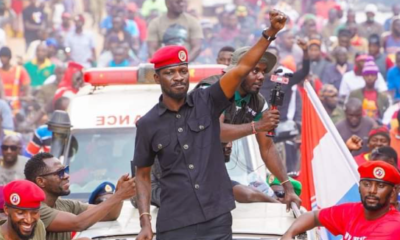The ongoing conflict in Gaza has once again brought tensions within Israel’s leadership to the forefront. Amidst the destruction and loss of life, retired general Gadi Eisenkot has spoken out against Prime Minister Benjamin Netanyahu, accusing him of not being truthful about the goals of the offensive. This has further strained relations between Israel and its Western allies, who have been pushing for a two-state solution to the Israeli-Palestinian conflict. In this article, we will explore the tensions within Israel’s leadership and the impact they are having on the international community.
Background: The Ongoing Conflict in Gaza:
The conflict in Gaza began in early October when Hamas launched a surprise attack on southern Israel, killing over 1,300 people and taking hundreds of hostages. In response, Israel launched a series of airstrikes that have killed an estimated 25,000 people, according to the Hamas-run health ministry. The violence has only escalated since then, with no clear end in sight.
Tensions Among Israel’s Leadership:
One key member of Israel’s war cabinet, retired general Gadi Eisenkot, has publicly criticized Prime Minister Netanyahu for not being truthful about the military goals in Gaza. In an interview with Israel Ch-12 Uvda, Eisenkot stated that those advocating for the “absolute defeat” of Hamas were not “speaking the truth.” He also called for fresh elections, citing a lack of trust in the current leadership.
Growing Isolation on the International Stage:
The tensions within Israel’s leadership have also widened the gap between the country and its Western allies. The United States, in particular, has been pushing for a two-state solution to the Israeli-Palestinian conflict, but Netanyahu has repeatedly rejected this idea. This has led to frustration within the US government and a growing sense of isolation for Israel on the international stage.
The Future of Palestinian Statehood:
Netanyahu’s rejection of a future Palestinian state is also a repudiation of Arab attempts to mediate in the conflict. Saudi Arabia, for example, has offered to normalize ties with Israel as part of a ceasefire deal that includes a two-state solution. However, Netanyahu’s stance on this issue suggests that he is more interested in maintaining a hard-line anti-Palestinian position, which could potentially align with the views of former US President Donald Trump.
Israeli Public Opinion and the Political Landscape:
Netanyahu’s comments on a future Palestinian state also reflect the changing political landscape within Israel. A recent poll found that only 15% of Israelis want him to remain in office after the conflict, and while most still support military action against Hamas, the majority now prioritize bringing the remaining hostages home over the destruction of Hamas.
The Role of Arab Mediation:
The ongoing conflict has also highlighted the importance of Arab mediation in the region. While Israel has traditionally resisted outside involvement, the offer of normalization with Arab nations could potentially provide a path towards peace. However, Netanyahu’s rejection of a two-state solution and his reliance on far-right support may hinder any progress towards a comprehensive solution.
The Impact of the Conflict on Daily Life in Gaza:
Amidst the political tensions, it is important not to forget the impact of the conflict on daily life in Gaza. Palestinians are struggling to survive as Israeli attacks continue to destroy infrastructure and essential services. The ongoing violence and uncertainty also create a sense of fear and instability for the people of Gaza.
The Need for a Comprehensive Solution:
It is clear that a comprehensive solution is needed to address the ongoing conflict between Israel and Palestine. This must involve meaningful dialogue and a willingness to compromise on both sides. The international community must also play a role in facilitating this process and providing assistance to those affected by the conflict.
The tensions within Israel’s leadership and their impact on the international community highlight the urgent need for a resolution to the ongoing conflict in Gaza. The rejection of a two-state solution by Prime Minister Netanyahu and the growing isolation of Israel on the international stage only serve to prolong the suffering of all those involved. It is time for all parties to come together, engage in meaningful dialogue, and work towards


























